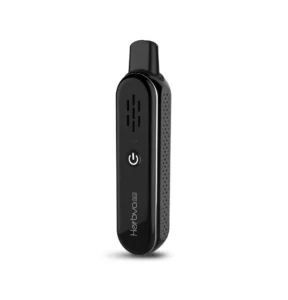Cannabidiol (CBD) has been suggested as a treatment to assist people with dementia in managing their symptoms. Currently, there is no evidence to prove that CBD can help reverse, stop or prevent dementia. There is research that shows that it can help manage the symptoms. It can be good news for families that are struggling with dementia. CBD comes from the hemp plant, which is related to marijuana.
The plant is drained, and the resin is removed. The compound contains two major parts: tetrahydrocannabinol (THC) and cannabidiol (CBD). THC is the recreational form of cannabis associated with creating highness in the United States. Products that contain more than 0.3% are considered to be illegal. Bonini et al. (2018) claimed that CBD is a medicinal form of the cannabis plant that generally helps to improve moods and reduce the damage caused by Inflammation. It is legal in the form in the United States, and it does not exhibit the potential for dependence and health-related problems. This article will explore what CBD is and how it is used to assist seniors with Alzheimer’s and related dementias.
How to Use CBD Oil
CBD can be administered in various forms, but oil is the most common. It is usually dropped under the tongue, usually contained in gel capsules, or applied on the skin directly. However, CBD oil is also available as an inhalant or pill form.
Freedman (1982) proved that cannabinoids could help remove dementia and improve the connection between brain cells. Other laboratories validated the results. At the same time, the United States FDA is yet to approve a CBD drug to treat dementia. According to Rubin (2018), a CBD-based drug known as Epidiolex was approved for treating epilepsy.
How CBD Works in the Body
There are several other ways that CBD can work to improve the health outcomes for people with dementia. From the consumer’s perspective, Aarsland et al. (2014) clarified that CBD can improve movement by reducing stress and anxiety in people living with dementia and lowering the decline of memory and other brain functions.
There is still some controversy surrounding CBD and companies’ claims about its positive effects. According to Brown & Wintersein (2019), the FDA has warned that CBD can cause liver injury, as demonstrated in some animal experiments with super doses. It can also affect the metabolism of other drugs. The long-term side effects remain unknown.
Benefits of CBD for seniors with Dementia
Boehnke et al. (2021) noted that CBD is commonly used to help people with insomnia, poor sleep, anxiety, and pain relief. As CBD has been seen to help reduce agitation and anxiety, it is believed to help people reduce the symptoms in seniors with dementia.
Because of the effects of dementia on the brain, a senior can become agitated and anxious in many situations. Sometimes the agitation can even turn violent. The disease causes such behavioral changes, and it’s not the fault of the loved one. CBD may be able to alleviate such symptoms.
Additionally, the Dementia Care Central shows that CBD can also help: Reduce Inflammation, reduce oxygen buildup, stimulate the brain and reduce the decline of memory and some other brain function.
How CBD Helps in Inflammation, Oxygen Buildup, and Memory and Brain Function
Inflammation
Inflammation is the natural response of the body to injuries. Maybe you are used to seeing inflammation around a wound or a cut. But neuroinflammation is associated with different forms of dementia like Alzheimer’s disease and causes clumps of proteins to build up in the brain. It makes it harder for the brain to function over time, and as a result, the body can respond with Inflammation in the area. These can make it even harder for the brain to make connections. But the previous study noted that CBD could help reduce inflammation and help with dementia.
Oxygen Buildup
Oxygen buildup ties up with inflammation in the brain. As the brain tissues expand, oxygen is released. Hence, the more the inflammation, the more oxygen builds up, releasing more oxygen into the brain. It makes the brain lose functionality. It results in memory loss and other brain deterioration effects. Oxygen is also released once the body is stressed. These happen mostly for seniors with dementia. Previous research also claimed that CBD oil could help reduce stress and lower the negative effects of oxygen in the brain.
Memory and the Brain Function
As dementia increases, the brain tissue dies, and function is lost completely. The process can take the time or even happen rapidly. In Watt & Karl (2017), CBD showed promising results to help reverse or stop the loss of brain function and memory loss in dementia patients. It also stated that CBD could help stimulate the brain to keep connections within the brain and assist seniors in potentially delaying the effects of dementia. The information gives a lot of hope in the fight against dementia. Only a few clinical trials have been conducted to determine the effects of CBD on dementia. It makes it difficult to come to a scientific conclusion. But scientists are carrying out research to help further the ability to help those with dementia. There are several other ways that CBD can work to improve the health outcomes for people with dementia.
Risks Associated with CBD Oil
The world health organization stated that there are no public health problems associated with pure CBD. Also, it does not exhibit addictive properties and has not been shown to cause health risks, including pure CBD. Some retailers produce CBD products with some other ingredients or stains of CBD that are tainted with other substances. Other companies misrepresent their products and place different packaging labels on the product. It can cause a risk to the loved ones. Obtain any CBD product through a company that has been approved by a third party, meaning the company’s products have been tested by a third party, which means that the products are tested independently for quality.
If you are interested in using CBD to manage symptoms, consult a doctor first to evaluate the risks and discuss the best option. There is much to discover when it comes to CBD and its effectiveness in treating the symptoms of dementia. But many users are hopeful that new research and medications will be developed to end dementia completely.
Bottom Line
Dementia is not a disease but a set of symptoms that describe a predictable set. It may take many forms, from Alzheimer’s to vascular dementia and Lewy Bodies Dementia. It can also result from the progress of other neurodegenerative diseases like Huntington’s disease and Parkinson’s. If you have an interest in using CBD oil for dementia. Ensure you contact your doctor first and determine whether CBD will be good for you, especially if you are already under any medication.
Reference
Aarsland, D., Taylor, J. P., & Weintraub, D. (2014). Psychiatric Issues In Cognitive Impairment. Movement Disorders, 29(5), 651-662.
Boehnke, K. F., Gagnier, J. J., Matallana, L., & Williams, D. A. (2021). Substituting Cannabidiol For Opioids And Pain Medications Among Individuals With Fibromyalgia: A Large Online Survey. The Journal Of Pain, 22(11), 1418-1428.
Bonini, S. A., Premoli, M., Tambaro, S., Kumar, A., Maccarinelli, G., Memo, M., & Mastinu, A. (2018). Cannabis Sativa: A Comprehensive Ethnopharmacological Review Of A Medicinal Plant With A Long History. Journal Of Ethnopharmacology, 227, 300-315.
Brown, J. D., & Winterstein, A. G. (2019). There Are Potential Adverse Drug Events And Drug-Drug Interactions With Medical And Consumer Cannabidiol (CBD) Use. Journal Of Clinical Medicine, 8(7), 989.
FREEDMAN, D. H. (1982). Source. Diagnostic Gynecology And Obstetrics, 4(2), 151-153.
Rubin, R. (2018). The Path To The First FDA-Approved Cannabis-Derived Treatment And What Comes Next. Jama, 320(12), 1227-1229.
Watt, G., & Karl, T. (2017). In Vivo Evidence For Therapeutic Properties Of Cannabidiol (CBD) For Alzheimer’s Disease. Frontiers In Pharmacology, 8, 20.
Ksenia owns her own dermatology clinic in London and is a nutritionist consultant. Ksenia is also a regular contributor to popular media outlets. In her spare time, she enjoys horse riding, clay pigeon shooting, rummaging in vintage stores and countryside walks.
[email protected]
- Mushroom Capsules By Glowbar London-Unlocking the Magic of Mushroom Capsules: A Journey with Glowbar London’s Wellness Wonders - October 17, 2023
- Does CBD Hemp Oil Have Side Effects? - February 22, 2023
- Beverages you can add CBD oil - October 22, 2022















